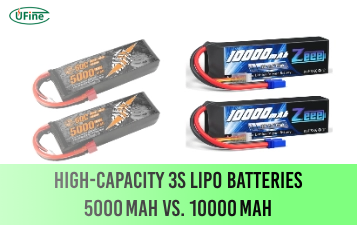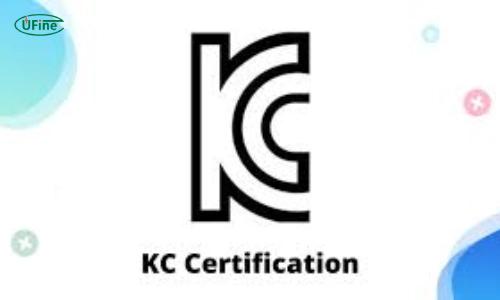The KC Certification is crucial for lithium batteries. It ensures safety and quality in South Korea. This article will explain what KC Certification is and why it matters. We’ll also guide you on how to get this certification and compare it with others.
Part 1. What is KC certification?
KC Certification, short for Korea Certification, is a mandatory safety mark for products sold in South Korea. It ensures that products meet the Korean safety, health, and environmental standards. This certification confirms that lithium batteries are safe and meet quality standards.
Regulatory Background
The Korea Agency for Technology and Standards (KATS) oversees KC Certification. This government body sets the rules and standards for many products, including lithium batteries. KATS ensures that products are safe, reliable, and of high quality.
KATS works under the Ministry of Trade, Industry, and Energy (MOTIE). They regulate the testing, inspection, and certification processes. This ensures that only products meeting strict safety criteria can get KC Certification.
Legal and Safety Requirements
Lithium batteries must meet specific legal and safety requirements to get KC Certification. These include:
- Electrical Safety: Batteries must not cause electrical shocks or fires. They must pass tests for insulation, voltage, and heat resistance.
- Chemical Safety: The batteries must not leak harmful chemicals. They need to pass tests for chemical stability and non-toxicity.
- Performance Standards: Batteries must perform reliably under everyday use. This includes tests for capacity, charging cycles, and durability.
These requirements help protect consumers and the environment. They ensure that lithium batteries sold in South Korea are safe and high-quality.
Part 2. Importance of KC certification for lithium batteries
Ensures Safety
KC Certification ensures that lithium batteries are safe to use. It tests for electrical, chemical, and fire hazards. By meeting these safety standards, the batteries protect users from potential harm, like explosions or leaks.
Guarantees Quality
KC Certification guarantees the quality of lithium batteries. The certification process includes rigorous testing for performance and durability. This means the batteries will work well and last longer, providing reliable power for your devices.
Legal Requirement
In South Korea, selling lithium batteries legally requires KC Certification.
With this certification, companies can legally sell their batteries in the market. This ensures that all batteries available to consumers meet high standards.
Builds Consumer Trust
KC Certification builds trust with consumers. When people see the KC mark, they know the product has passed strict safety and quality tests. This trust can lead to increased sales and customer loyalty.
Competitive Advantage
Having KC Certification gives companies a competitive advantage. It differentiates their products from uncertified ones. This certification can be a crucial selling point, especially in a market where safety and quality are paramount.
Environmental Protection
KC Certification also helps protect the environment. It includes standards for the safe disposal and recycling of lithium batteries. This reduces the environmental impact of battery waste and promotes sustainable practices.
Compliance with International Standards
KC Certification often aligns with international standards. This makes it easier for companies to expand into other markets. It shows that their products meet local and global safety and quality benchmarks.
Reduces Liability
KC Certification reduces liability for manufacturers. By meeting the required safety standards, companies can avoid legal issues related to product failures or accidents. This certification proves they have taken all necessary steps to ensure safety.
Part 3. How do you obtain KC certification for lithium batteries?
Application and Documentation
Step-by-Step Guide on How to Apply for KC Certification:
- Preparation: Before applying, ensure your lithium batteries meet the basic safety and quality standards. Gather all necessary technical information and test results.
- Select a Certification Body: Choose an accredited certification body in South Korea. Examples include the Korea Testing Laboratory (KTL) and the Korea Electrical Testing Institute (KETI).
- Submit Application: Fill out the application form provided by the certification body. Provide detailed information about the lithium batteries, including specifications and usage.
- Documentation Submission: Along with the application, submit the required documents. If available, this includes technical specifications, safety data sheets, and previous test reports.
- Payment of Fees: Pay the required fees for the application and testing process.
Necessary Documentation and Paperwork Required for the Application:
- Technical specifications and design details of the lithium batteries.
- Safety data sheets (SDS) and material safety data sheets (MSDS).
- Previous test reports and certifications, if any.
- Manufacturer’s quality management system documents.
- Application form and proof of payment for the certification process.
Testing and Evaluation
Detailed Explanation of the Testing Procedures:
- Initial Review: The certification body reviews the submitted documents to ensure they are complete and meet the preliminary requirements.
- Laboratory Testing: You must send lithium batteries to accredited labs for testing. Tests include electrical safety, thermal stability, and chemical composition.
- Performance Testing: Batteries undergo performance tests to assess their capacity, charging cycles, and overall durability under different conditions.
- Safety Standards: The verification authority tests batteries to ensure they comply with safety standards. This includes checks for overcharging, short-circuiting, and exposure to extreme temperatures.
Safety and Performance Standards That Batteries Must Meet:
- Electrical Safety: Ensuring no risk of electric shock or fire.
- Thermal Stability: The battery must not overheat under normal and extreme conditions.
- Chemical Safety: No harmful leakage or chemical hazards.
- Performance Metrics: Adequate capacity and consistent performance across the product’s lifespan.
Certification and Labeling
Process of Obtaining the KC Mark upon Successful Certification:
- Test Results Review: The certification body reviews the test results. The process moves to the next stage if the batteries pass all required tests.
- Issuance of Certification: Upon successful review, the certification body issues the KC certification.
- Award of KC Mark: Certification authority grants the KC mark to certified batteries, which manufacturers must display on the product and packaging.
Guidelines for Proper Labeling and Documentation to Ensure Compliance:
- Display KC Mark: Display the KC mark on the battery and packaging.
- Include Certification Number: The KC mark should include the certification number issued by the certification body.
- Provide User Instructions: Include clear usage instructions and safety warnings in the product documentation.
- Maintain Records: Keep detailed records of the certification documents and test results for regulatory inspections and renewals.
Part 4. Comparison with other international certifications
KC vs. CE Certification
Key Differences and Similarities:
Scope and Region:
- KC Certification is specific to South Korea and focuses on products sold.
- CE Certification is used in the European Union and indicates compliance with EU health, safety, and environmental requirements.
Testing Standards:
- KC Certification requires specific testing according to Korean standards, which includes electrical safety, chemical safety, and performance.
- CE Certification involves testing based on EU directives, which can vary depending on the product type. It often focuses on general safety, electromagnetic compatibility (EMC), and environmental impact.
Regulatory Bodies:
- The Korea Agency for Technology and Standards (KATS) manages KC Certification.
- CE Certification is regulated by various notified bodies within the EU, depending on the product category.
Applicability in Different Regions:
KC Certification:
- Mandatory for products sold in South Korea.
- Ensures compliance with South Korean safety and quality standards.
CE Certification:
- Mandatory for products sold in the European Union.
- They are required to market and sell products in EU countries legally.
KC vs. UL Certification
Comparison of Safety and Performance Standards:
Safety Standards:
- KC Certification ensures compliance with South Korean safety standards, focusing on electrical safety, thermal stability, and chemical safety.
- North America widely recognizes UL Certification (Underwriters Laboratories). It focuses on rigorous safety testing to prevent electric shock, fire, and other hazards.
Performance Standards:
- Both certifications require performance testing, but the specific tests and criteria may vary. KC Certification tests for capacity, charging cycles, and durability are under South Korean standards.
- UL Certification emphasizes safety and performance under North American standards, often involving more detailed and rigorous testing procedures.
Market Implications of Holding Both Certifications:
Increased Market Access:
- Holding KC and UL certifications allows manufacturers to sell their products in South Korea and North America. This expands the market reach and increases potential sales.
Enhanced Credibility:
- Having both certifications enhances the credibility and perceived quality of the product. Consumers and retailers in multiple regions are likelier to trust and choose products with recognized safety certifications.
Competitive Advantage:
- Companies with both certifications gain a competitive edge in the global market. They demonstrate a commitment to meeting high safety and quality standards, which can attract more customers and business partners.
Regulatory Compliance:
- Ensuring compliance with South Korean and North American regulations reduces the risk of legal issues and product recalls. This helps maintain a positive brand reputation and customer trust.
Part 5. FAQs
-
What types of lithium batteries require KC Certification?
All types of lithium batteries, including lithium-ion and lithium polymer batteries, require KC Certification if intended to be sold in South Korea. -
Is KC Certification transferable to other countries?
No, other countries do not automatically recognize KC Certification; it is specific to South Korea. Manufacturers may need additional certifications or comply with different regulatory requirements when exporting products to other countries. -
How long does it take to obtain KC Certification for lithium batteries?
The time required to obtain KC Certification can vary depending on factors such as the battery design’s complexity, the documentation’s completeness, and the certification body’s workload. Typically, it can take several weeks to a few months. -
What is KC EMC?
KC EMC stands for Korea Certification Electromagnetic Compatibility. It is a certification that ensures electronic devices comply with electromagnetic compatibility standards in South Korea. -
What is the KCC standard?
The KCC standard, or the Korean Communications Commission standard, regulates the certification of telecommunications equipment and devices in South Korea. It ensures that such devices meet technical and regulatory requirements for use in the country.
Related Tags:
More Articles

High‑Capacity 3S LiPo Batteries: 5000 mAh vs. 10000 mAh
Compare 3S LiPo 5000mAh vs 10000mAh batteries by weight, power, and use. Find the best fit for your drone, RC car, or boat setup.
Top 5 Applications for Small 3S LiPo Batteries
Small 3S LiPo batteries power drones, RC gear, wearables, and robotics with high energy and low weight. Making them ideal for compact electronics projects.
Building and Charging Your Own 3S LiPo Pack: A Step‑by‑Step Guide
Learn how to build, balance, and charge a 3S LiPo battery pack safely at home with this complete DIY guide for hobbyists and beginners.
How to Choose the Right LiPo Battery Plug Type?
Discover the best LiPo battery plug types, how to choose them, and expert tips for safe usage, soldering, and maintenance.
Choosing the Right Connector for Your 3S LiPo Battery
Choosing the right 3S LiPo connector depends on current, space, and use. Learn the pros and cons of XT60, JST, EC3, and more.




